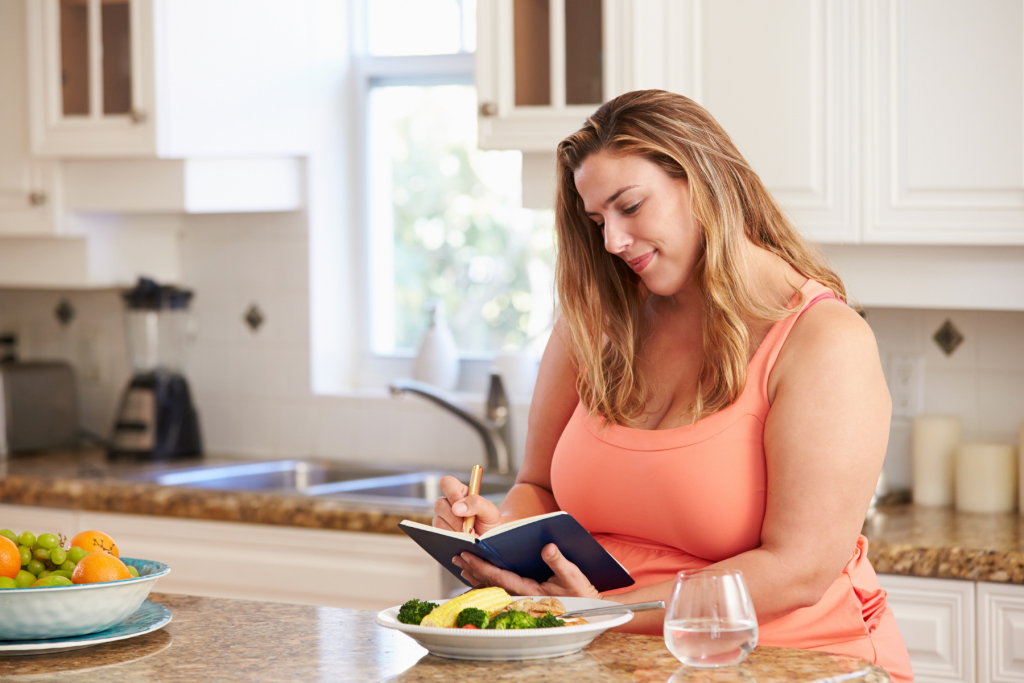Replace stress eating with self-care
In the first part of our three-part introductory series on nutrition, we examine the relationship between stress and food.

Do you fall prey to stress eating?
Stress impacts us in unique ways. For some, food might be used as a way to cope with uncomfortable feelings. Others may find it difficult to listen and/or respond to hunger signals, forget to eat, and end up feeling starving.
If you tend to reach for food when you feel stressed: first off, don’t beat yourself up. Emotional eating is normal, and it’s ok. Food is tied to so many important (and emotional) things in our lives. Birthday cake is celebratory, meeting friends for dinner is social, making a meal for someone who is sick shows love, pizza on Fridays is tradition.
If you sometimes eat in response to stress, realize it’s a valid coping mechanism, and don’t sweat it. But, if you’re finding you’re only using food to cope, take a moment to reflect and dig deeper.
Rather than focusing on food, turn to self-care, instead. You can start by asking yourself this: are you getting the basics when it comes to self-care?
- Are you getting enough sleep?
- How much do you work each week?
- What kind of support systems do you have?
- What do you do to recharge?
- Do you engage in movement you enjoy on a regular basis?
- Do you go outside each day?
Taking a look at the bigger picture can help. If you do find that you’re using food to cope more often than usual, consider exploring self-care as a means to cope first. What does taking care of yourself look like for you? Are you getting enough of it? If not, what might it take to prioritize it in your life? Addressing those problems directly may help and ease your relationship with food.
Aside from implementing regular self-care practices to stay ahead of the stress, looking specifically at what’s happening in the moment can be really helpful. When you get the urge to reach for food to cope, ask yourself:
1. What are you feeling right now?
2. What do you need right now?
Be specific. Are your feelings coming from a place of discomfort, sadness, anger, grief, boredom, shame, irritability, fear, joy or worry? Once you identify what you’re feeling, then ask yourself: what do I need, in this moment, to deal with this feeling?
Would a distraction be helpful? Maybe take 30 minutes to watch your favorite show, or five minutes to cuddle with a pet. Are you in need of support? Reaching out to a friend to chat might help. Do you need to face the feeling directly? Consider speaking with a therapist or write about your feelings in a journal. Do you need self-care? A quick nap or taking a walk may be just what you need.
However, there’s also a chance self-care may not fully solve the problem. But that does not mean you are out of options. Your relationship with food is not something to give up on, but a constant work in progress. It’s okay to have better and worse days, as long as you don’t give up. If you need some extra coaching, motivation, help setting up a meal plan, or simply someone to keep you accountable, think about enlisting the help of a nutritionist. We are trained to handle these types of relationships with food. Our goal is to help you take control over what you eat, rather than letting food control you. Asking for help is not a sign of weakness, but a necessary part of maintaining a healthy and happy life. Others can empower you to live better more than you may think.
Keep in mind, stress can be difficult to control, and there is no single way to overcome it. And, like all things nutrition- and wellness-related, no two people experience stress in the same way. Self-care and managing feelings in a helpful way looks a little different for everyone, and changes throughout the course of our lives. Self-care isn’t just about drinking green juice, doing yoga and meditating 24/7. Sometimes it looks like ordering takeout and watching Netflix. Other times, it means asking for help.

Jacqueline Ballou Erdos, MS, RD, CCSD, CDN is a Registered Dietitian and Board Certified Specialist in Sports Dietetics. She is passionate about helping clients foster a lifelong, healthy relationship with food and their bodies, and works with her clients to create a custom plan that suits their needs.
RECENT POSTS
CATEGORIES

> Privacy Practices
> Terms and Conditions
Copyright © Performance 2022.
All rights reserved.
JOIN OUR COMMUNITY
Sign up for our mailing list to learn more about Performance, stay up-to-date on our offerings, and receive our newsletter.
Digital Marketing by Rebel Interactive Group
